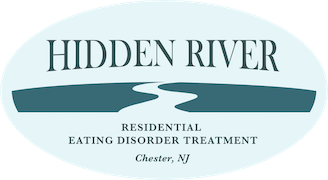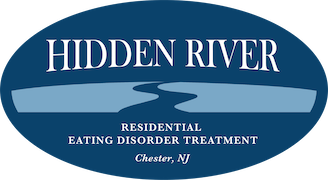Summer Vacation with an Eating Disorder
There are so many things to love about summer: the warm weather, the shining sun, and the long break from school, to name a few. However, for many young people, summer’s deviation from regular weekly routines can be a challenge, particularly if they struggle with an eating disorder. In addition to a break from routines, without school keeping them geographically bound, many families take vacations, which can be difficult for those with eating disorders.
Vacation presents the need to find new restaurants or navigate new grocery stores, which can be significant stressors for those with eating disorders and those in eating disorder treatment. Vacation also brings up the anxiety of novelty, which can coexist with adventure and wander as families travel to new places. Fortunately, there are ways to reduce the negative impacts of a vacation during eating disorder recovery. Read on to learn more about this topic!
To start, let’s acknowledge the benefits of taking a vacation.
There are many relational, physical, and emotional benefits to taking vacation, which is one of the main reasons why people take time away from home. Other reasons include seeing new places and meeting new people. A 2005 study analyzed data from questionnaires of vacation-takers, learning that recuperation was attributed to more free time, warmer weather, having the time to exercise, getting good sleep, and meeting people outside of regular social circles (1).
Another study, conducted in 2013, showed that the amounts of antidepressants dispensed by pharmacists significantly decreased as the amount of vacation increased within a Swedish population (2). It’s generalizable, then, to say that vacations bring many psychological benefits.
Despite these positive impacts, a summer vacation can cause distress for those with eating disorders.
Breaking out of regular routines — routines that help individuals maintain regular meal times and sizes — can cause an amount of uncertainty that may detract from recovery. Some individuals might also rely on eating food that is known and comfortable to them in their recovery, and, especially when traveling abroad, they might be limited with the foods and flavors available.
On top of these food-related challenges, the anticipated stressors of vacation, like catching flights and locating accommodations, can also exacerbate a person’s psychological load, which in turn might take away from their regular coping strategies. While they may enjoy certain aspects of vacation, those with eating disorders might face difficulty with maintaining their recovery progress.
So how can you support a loved one with an eating disorder during a vacation?
There are many ways to reduce the negative impacts of vacation when it comes to eating disorder treatment. These considerations can make all the difference, allowing an individual to focus on the positive aspects of taking a vacation while still maintaining their recovery progress.
Here are six ways to be mindful of eating disorder recovery during vacation:
- Plan out meals to reduce the anxiety around unknown menus or meal times.
- Pack lots of water and snacks so you can listen to your body’s hunger and thirst cues, as they might change with a changing time zone or climate.
- Let a trusted friend or family member know that you’re anxious about your eating disorder recovery while on vacation. They can be a good person to talk with throughout the trip and can check-in on how you’re doing and feeling.
- Bring clothes that make you feel comfortable so you can spend less time worrying about what to wear and more time enjoying your new surroundings.
- Consider what your triggers are and make contingency plans — but also forgive yourself if you take a step backwards (or sideways!) in your recovery.
- Acknowledge that traveling is a stressful experience and be aware of how this stress might impact you.
With the proper approach and guardrails, individuals struggling with eating disorders can enjoy a summer vacation.
Remember to plan ahead and ask for help when needed. It’s okay if your trip requires more intentional planning or includes more home-cooked (or hotel-prepared) meals. Even if you’re in the midst of eating disorder treatment or recovery, you can still take a much-deserved vacation!
For more support in eating disorder recovery, Hidden River is here, no matter the season. Our mental health team can support residents as they’re planning upcoming vacations, helping them consider the different aspects of their eating disorder recovery that might come into play while away from home.
To learn more about our services, please reach out to info@hiddenriverhealing.com.
Visit our website to learn more about eating disorder treatment at Hidden River. For a closer look at our grounds and living quarters, take a look at our gallery.






Leave a Reply
You must be logged in to post a comment.